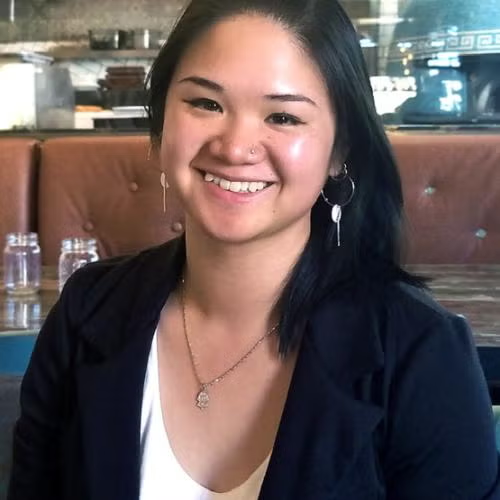Diversity & Community Mental Health Emphasis
Unique Approaches for Underserved Communities
Clinician. Consultant. Researcher. Policy advocate. Community organizer. The Diversity and Community Mental Health (DCMH) area of emphasis at PAU gives you specialized knowledge and clinical training to provide psychological services for the public mental health sector.
You’ll work with diverse populations who have been underserved – or even unserved – with unique combinations of mental health problems. Your consumers might include trauma survivors, LGBTQ families, dual diagnosis/substance abuse patients, or participants in community-specific integrated health programs.
Community mental health addresses challenges on both an individual and systemic level. Services are often atypical, as care involves the consumer and family members, and is integrated with the community in collaborative interdisciplinary teams. In addition, issues of crisis and risk management are particularly important.
Emphasis Objectives
- Recruit, train, and mentor psychologists proficient in the unique theoretical bases, models of practice, and organizational and policy issues of community mental health.
- Prepare students to become competent clinicians, researchers, and future leaders in the public mental health sector.
- Prepare a cohort of psychologists to serve the diverse needs of unserved and underserved communities.
- Prepare culturally competent public and community mental health-focused clinical psychologists able to meet the needs of the diverse communities in the public mental health sector.
Not only do we aim to prepare students to be public sector professionals, but we expect you to become a leader in the field. As such, DCMH students will be exposed to the skills and mentorship necessary for these leadership roles.
The DCMH emphasis provides students with the specialized skills and knowledge to assume a variety of roles – not only as CMH clinicians, but also consultants, researchers, policy advocates, community organizers, and administrators.
Emphasis Requirements
Curriculum
Training in community mental health is typically learned piecemeal and on-the-job. PAU’s approach is deliberately systematic.
Our curriculum focuses on specific competency areas:
- Theories and practice models of community mental health
- Vulnerable populations and special diagnoses (e.g., substance abuse, co-occurring disorders, chronic and serious mental illness, homelessness, monolingual clients)
- Cultural competence as related to mental health disparities and underserved communities.
- Discrimination and stigma reduction.
- Risk management: suicidality, homicidally, child and elder abuse
- Organizational, economic, advocacy, and policy issues in the public mental health system
- Program evaluation and organizational research
Consumer-driven education is a key component of your training. In your courses, you will work with or visit different community mental health organizations to learn directly from consumers and families themselves.
We also invite consumers to share their experiences and offer invaluable perspectives, through organizations such as NAMI and Momentum for Mental Health.
Coursework
The DCMH area of emphasis includes 15 units (5 courses) over the course of two years (the 2nd and 3rd or 3rd and 4th years of the PhD program). These 15 units are encompassed within the 18 units of elective coursework required of students in the PhD program.
Five courses required for all PhD students are also requirements in the DCMH emphasis:
- E212A: Psychopathology and Psychodiagnosis I
- E212B: Psychopathology and Psychodiagnosis II
- T303B: Psychological Science III: Biological Bases of Behavior II: Psychopharmacology
- T300: Cultural Differences: Cross-Cultural Issues in Psychology
- T301A: Psychological Science I: History and Systems
Your coursework sequence is designed to supplement the PhD program’s general clinical psychology training with an emphasis in diversity and community mental health:
Year 1 (typically the 2nd year of the PhD program):
- DCMH course #1: Community Mental Health I (3 units)
- DCMH course #2: Serious Mental Illness (3 units)
Year 2 (typically the 3rd year of the PhD program):
- DCMH course #3: Community Mental Health II: Organizational Management and Consultation (3 units)
- Timing Optional (take the course during the spring quarter of whichever year preferred):
- DCMH course #4: Mental Health Disparities (3 units)
- DCMH course #5: Choice from numerous existing PAU elective courses including, but not limited to: substance abuse, child/family, trauma, health, forensic, global mental health, technology and mental health, LGBTQ, Black/African American mental health, or Latinx mental health.
Timing Optional (take the course during the spring quarter of whichever year preferred):
- DCMH course #4: Mental Health Disparities (3 units)
- DCMH course #5: Choice from numerous existing PAU elective courses on topics that include but are not limited to: substance abuse, child/family, trauma, health, forensic, global mental health, technology and mental health, LGBTQ, Black/African American mental health, or Latinx mental health. DCMH students should contact Dr. Chu for approval of eligibility for the 5th course.
Consumer-driven education is a key component of training in Diversity and Community Mental Health. Students in the DCMH emphasis will be required in the context of different DCMH courses to work with or visit different community mental health organizations to learn experientially from consumers and families themselves. Consumers are also invited as speakers in DCMH curriculum to share their experiences and offer invaluable perspectives, through organizations such as NAMI and Momentum for Mental Health.
Research Training
Your DCMH coursework will be paired with both research and clinical training. You will complete dissertation work with one of PAU’s numerous research groups that support an emphasis in community mental health topics.
Research focused on cultural diversity issues, serious mental illness, substance abuse, systems-based interventions, or other special populations are only a small example of acceptable research topics.
Program evaluation or organizational research is typically needed in community mental health leadership, and is particularly encouraged in the DCMH area of emphasis.
The DCMH director will qualifying dissertation research projects.
Clinical Training: Practicum
All DCMH students, like other PhD students, will participate in a second-year practicum at the Community Clinic. During your third or fourth, you will participate in at least one community mental health practicum training site.
Clinical Training: Internships
Two internship spots in the APA-accredited Serious Mental Illness Recovery Track of Marin County Mental Health are available to PAU DCHM students each year. Clients are diverse, with intern opportunities to provide services (and receive supervision/consultation) in Spanish and Vietnamese.
These positions include supervised training in integrated psychology services for adults and older adults with acute or serious/persistent mental illness. You will provide individual and group psychotherapy, as well as learning skills for crisis intervention, stabilization and assertive case management.
Interns also provide intensive IDDT and case management services and field interventions to the homeless, older adults, in the medication clinic, in the Health and Wellness Campus, and in client homes.
Eligibility & Completion
All PAU PhD students are eligible for the DCMH emphasis area.
Applications for the emphasis can be submitted after completion of coursework, practicum, and dissertation proposal at this link.
Students can only report completion of the Diversity and Community Mental Health Area of Emphasis if they have fulfilled all requirements of the emphasis listed above (coursework, practicum, and dissertation defense completion).

Joyce P. Chu, PhD, Director, Diversity and Community Mental Health (DCMH) Area of Emphasis
Dr. Chu co-leads the Multicultural Suicide and Ethnic Minority Mental Health Research Groups at PAU, and is also Director of the Diversity and Community Mental Health (DCMH) emphasis which trains future psychologists to work with underserved populations in the public mental health sector.
Core Course Descriptions
Community Mental Health I (3 units)
This course is the first of a two-course sequence covering the history, theory, research, and practice of community mental health. Students will learn about the historical emergence and future directions of community mental health in the field.
Theoretical, research, and clinical foundations central to working in community mental health will be covered, including systems and ecological models, empowerment, wellness and recovery approaches, community organizations, the wraparound process, strength-based work, self-help, and psychoeducation.
We will also discuss the unique role of psychologists in community mental health, addressing research and organization-based knowledge needed in such roles as consultant, administrator, researcher, director, or supervisor.
Community Mental Health II: Organizational Management & Consultation (3 units)
This course is the second of a two-course sequence covering the history, theory, research, and practice of community mental health. Students will learn about the new roles and skills psychologists are expected and required to have to operate in the 21st century community mental health setting.
Psychologists are often viewed as change agents in the community necessitating a diversity of skills to be effective in their roles.
These skills include but are not limited to administrative, fiscal and procurement, policy development, advocacy, consultation and supervision, research, organizational analysis and strategic thinking. Embracing the ‘2nd curve’ opportunities, psychologists are poised to be organizational leaders needing administrative and management skills not traditionally taught in traditional clinical programs.
Conceptual and applied multileveled administrative skills will be explored and practiced. Prerequisite: Community Mental Health I.
Mental Health Disparities (3 units)
This course will engage students with the literature of mental health disparities in underserved and unserved communities, including ethnic and racial minorities, recent immigrants and refugees, sexual minorities, elderly, and individuals with disability, limited English proficiency, or low socioeconomic status.
Students will learn extant knowledge about emic versus etic symptom expression, diagnosis, and treatment. We will attend to special issues in culturally diverse individuals, including the influence of stigma, acculturation, identity, and other culturally specific values and practices.
The course will also cover common practices and models of working with and engaging underserved communities, with the aim of effectively serving the needs of these individuals, often within the context of community mental health.
Serious Mental Illness (3 units)
This course follows the foundational Psychopathology and Psychodiagnosis courses to provide more in-depth coverage of serious mental illness (SMI) with a focus on psychotic and affective disorders.
This Serious Mental Illness course is also part of a Diversity and Community Mental Health course sequence covering the history, theory, research, and practice of community mental health. We will examine literature on diagnosis, symptom presentation, and best treatment practices in working with clients with chronic and serious mental illness.
The course will focus particularly on providing a broad survey of evidence based treatment for serious mental illness focusing on the dissemination and transportation of evidence based treatment programs in real world community settings.
Prerequisites: Psychopathology and Psychodiagnosis I.

Community Mental Health
Community mental health involves a perspective of care that addresses challenges on both an individual and systemic level, and revolves around philosophies of wellness, recovery and consultation. CMH services are often atypical of traditional clinical psychology training; community mental health care involves the consumer and family members, and is integrated with the community in collaborative interdisciplinary teams.
Not only is CMH work embedded within unique approaches to care, but it is devoted to the service of clients dealing with a unique combination of mental health problems (e.g., co-occurring disorders, chronic and serious mental illness) from diverse underserved and unserved communities (e.g., homeless, disability, LGBTQ, racial and linguistic ethnic minorities, indigent, elderly, rural).

Student Spotlight: Lorna Chiu, Transforming Mental Health Services in the Public Health Sector
“I was interviewing for a position in Professor Joyce Chu’s Ethnic Minority Mental Health Research Lab when I learned I could work in suicide prevention within the Palo Alto community,” said Lorna. The laboratory work provided the ideal portal for Lorna to pursue her doctorate while serving the mental health needs of her community."

Alumni Spotlight: Jessica Byrd-Olmstead, PhD, Brings Humanity to Technology
PAU alumna Jessica Byrd-Olmstead, PhD, describes her career as an adventure, a river trip with many twists and turns. Lots of rapids, too, it seems.
Potential Loan Repayment Options
The DCMH program prepares students for early career options that may qualify for application to the Public Service Loan Forgiveness (PSLF) Program or the National Health Service Corps Scholarship or Loan Repayment Program. Other potential loan forgiveness programs are listed on the APA Loan Forgiveness website.

